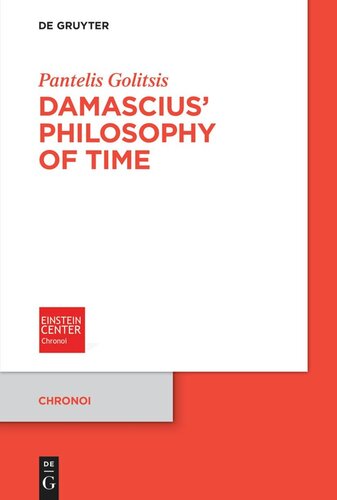

Most ebook files are in PDF format, so you can easily read them using various software such as Foxit Reader or directly on the Google Chrome browser.
Some ebook files are released by publishers in other formats such as .awz, .mobi, .epub, .fb2, etc. You may need to install specific software to read these formats on mobile/PC, such as Calibre.
Please read the tutorial at this link: https://ebookbell.com/faq
We offer FREE conversion to the popular formats you request; however, this may take some time. Therefore, right after payment, please email us, and we will try to provide the service as quickly as possible.
For some exceptional file formats or broken links (if any), please refrain from opening any disputes. Instead, email us first, and we will try to assist within a maximum of 6 hours.
EbookBell Team

0.0
0 reviewsOpen Access
The late Platonist philosopher Damascius both reassumed and rejuvenated the rich and long-established Greek thinking about time. In distinguishing between different perceptions of time, by Plato, Aristotle and his Neoplatonist predecessors, Damascius offered novel perspectives, which can be seen as anticipating modern and contemporary theories of time, such as McTaggart’s series and presentism. The greatest merit of his philosophy of time, however, is his deep reflection on what it is for a living being to have its being in becoming – as it happens with us human beings – and how this relates to stillness, temporality and temporalization. Time is interpreted by Damascius not merely as a concomitant of the celestial motions, nor as an abstract entity existing in the human soul, but as a power of ordering, which is active at different levels. Damascius’ time comprises the biological and the historical time but is also the time that pertains to the essence and the activity of heaven, in which there is neither past nor future. The present book explores the richness of Damascius’ thought by going into the fundamental concepts of his philosophy of time: the indivisible now and the present time, the flowing now and the non-flowing now, the flowing time and the whole of time, in which past, present and future coincide. Damascius fully developed his thoughts about time in his treatise On Time, which is lost. The preserved fragments of this treatise are translated and annotated in an Appendix.